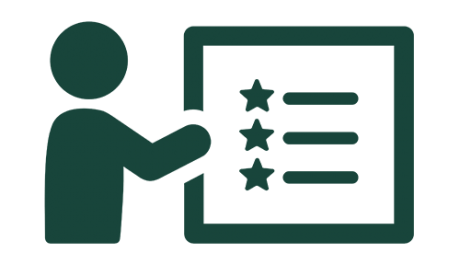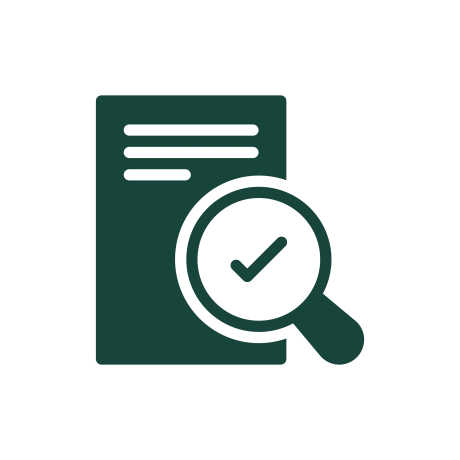
See also: Managing Stress at Work
Mental health is equally as important as physical health to the wellbeing of faculty, staff, academic specialists, and postdocs. Mental health relates to the biological systems of the body, just like any physical ailment does. Mental health can have as serious implications as physical illnesses, and often mental health and physical health are connected (Malla et al., 2015; Ohrnberger et al., 2017). Since mental health has similar causes and impacts on people’s lives, it should be taken as seriously as physical health and discussed as normally as any physical illness, to aid in reducing stigma around mental health issues.
Work can have positive and negative impacts on people’s mental health. Current research says that working anywhere from 8 hours per week to 50 hours per week allows individuals to access the well-being benefits of working (Kamerade et al., 2019). Work provides a routine, social contact, shared goals, variety, enforced activity, and identity (MacKay, 2017). However, working longer than 50 hours per week can cause workers’ well-being and mental health to decline. In fact, working long hours, as well as having high job demands, low support, and low job control, can lead to exhaustion, burnout, occupational stress, anxiety, depression, other mental health disorders, and limit individuals’ ability to care for themselves (Kamerade et al., 2019; Law et al., 2020). So, employers and employees alike should try to maximize the benefits of employment while avoiding the negative costs of long working hours and a negative work culture.
Unfortunately, there are still stigmas around mental health. These negative or judgmental attitudes can be barriers for seeking mental health counseling. These stigmas impact people so much that fewer than 50% of people living with a diagnosable mental illness actually seek treatment (Sickel et al., 2016). Seeking treatment for mental health has many benefits. Therapy can help employees learn how to effectively solve conflicts, relieve anxiety or stress, cope with changes, recover from past trauma, sleep better, learn how to manage unhealthy responses in situations, and cope with everyday situations (Mayo Clinic, 2016). Grounding strategies, such as gratitude, visualization, mindfulness, and focused breathing, can also be useful tools to manage stress.
 Practical Example
Practical Example
Throughout the day, employees are exposed to many stressors both in their work and personal lives. Grounding strategies can help manage the stress employees feel. A few types of grounding strategies are progressive muscle relaxation and guided imagery. To perform progressive muscle relaxation, tense muscles starting at the head and moving to the toes. Hold the tightness in the muscles for three seconds, then slowly relax that set of muscles, letting all the tension out of them, before moving to the next muscle. Progressive muscle relaxation can be done anywhere and at any time of the day (Hutchison, n.d.b; Decker et al., 2019). Contact the MSU WorkLife Office to request a presentation on grounding strategies for stress relief.
 At a Glance
At a Glance
- Mental health should be treated like physical health and discussed as normally as physical illnesses, especially because physical and mental health can be connected
- By encouraging a holistic workplace well-being plan, conditions such as depression and anxiety can become destigmatized, thus reducing barriers for strategies, classes, or treatment
- Increased levels of stress result in deteriorating mental and physical health conditions, if not managed in a healthy way
- Employment offers people a routine, social contact, shared goals, variety, enforced activity, and identity, which heightens well-being
- Working more than 50 hours per week, as well as having high job demands, low support, and low job control, can cause declines in mental health and well-being
- Overwork can lead to exhaustion or burnout
- Therapy can help people learn how to effectively solve conflicts, relieve anxiety or stress, cope with changes in life, recover from past trauma, and improve sleep
 MSU In Action
MSU In Action
There are many ways to practice grounding strategies on MSU’s campus. For example, Health4U offers “Rest with Music” classes, where live music is played, for people to relax as a break from their busy working day. Health4U also offers other emotional wellness classes and one on one emotional wellness coaching. Visit https://health4u.msu.edu/wellness for more information.
The many walking paths on campus can also be an effective way for employees to ground themselves by taking a break from work to manage their mental health. The Employee Assistance Program (EAP) offers free, confidential, short-term counseling (six sessions) for MSU employees, their spouses or partners, and their children. EAP also offers counseling on work and employment situations, as well as stress reduction classes and emotional wellness classes. For more information on their services, see https://eap.msu.edu/. If you need help, do not hesitate to ask.
Resources on Campus
- Health4U
- Rest with Music classes
- Emotional wellbeing classes and one on one coaching
- Walking paths across campus can be useful for employees to practice grounding strategies throughout the workday. See Health4U’s maps to chart walks, runs, or bike paths: https://health4u.msu.edu/resources/msu-campus-walking-tour
- See https://health4u.msu.edu/wellness for more information
- Employee Assistance Program
- Free, confidential, up to six sessions of counseling, per issue
- For MSU employees (faculty and staff), their spouses or partners, and their children (insurance eligible)
- Counseling on work and employment situations
- Stress reduction classes
- Emotional wellness classes
- See https://eap.msu.edu/ for more information
- Free, confidential, up to six sessions of counseling, per issue
- WorkLife Office
- Professional staff offer one-on-one consultations to help employees deal with many issues, including stressors at work and at home
- See the introduction page of this guide for information on how to request a consultation
- The office also offers many presentations and trainings on a variety of topics, including stress and grounding strategies
- See the introduction page of this guide for information on how to request a presentation
- Professional staff offer one-on-one consultations to help employees deal with many issues, including stressors at work and at home
 References
References
Decker, J. T., Brown, J. L., Ashley, W., & Lipscomb, A. E. (2019). Mindfulness, meditation, and breathing exercises: Reduced anxiety for clients and self-care for social work interns. Social Work with Groups, 42(4), 308–322. https://www.tandfonline.com/doi/full/10.1080/01609513.2019.1571763
Hutchison, J. (n.d.b). Grounding strategies. [PowerPoint slides]. Michigan State University WorkLife Office. https://michiganstate.sharepoint.com/:p:/r/sites/MSUWorkLifeOffice/_layouts/15/Doc.aspx?sourcedoc=%7B3E4B9753-B004-4560-A83B-F869DF49A3AE%7D&file=Grounding%20Strategies.pptx&action=edit&mobileredirect=true
Kamerade, D., Wang, S., Burchell, B., Balderson, S. U., & Coutts, A. (2019). A shorter working week for everyone: How much paid work is needed for mental health and well-being? Social Science & Medicine, 241. https://www.sciencedirect.com/science/article/pii/S0277953619303284
Law, P. C., Too, L. S., Butterworth, P., Witt, K., Reavley, N., & Milner, A. J. (2020). A systematic review on the effect of work-related stressors on the mental health of young workers. International Archives of Occupational and Environmental Health, 93(5), 611–622. https://link.springer.com/content/pdf/10.1007/s00420-020-01516-7.pdf
MacKay, J. (2017, November 7). Finding work life balance: Tips, techniques, and exercises for a more balanced life. RescueTime. https://blog.rescuetime.com/work-life-balance-tips/#work
Malla, A., Joober, R., & Garcia, A. (2015). “Mental illness is like any other medical illness”: A critical examination of the statement and its impact on patient care and society. Journal of Psychiatry & Neuroscience, 40(3), 147-150. https://www.ncbi.nlm.nih.gov/pmc/articles/PMC4409431/
Mayo Clinic. (2016, March 17). Psychotherapy. https://www.mayoclinic.org/tests-procedures/psychotherapy/about/pac-20384616
Ohrnberger, J., Fichera, E., & Sutton, M. (2017). The relationship between physical and mental health: A mediation analysis. Social Science & Medicine, 195, 42–49. https://www.sciencedirect.com/science/article/pii/S0277953617306639?via%3Dihub
Sickel, A. E., Seacat, J. D., & Nabors, N. A. (2016). Mental health stigma: Impact on mental health treatment attitudes and physical health. Journal of Health Psychology, 24(5), 586–599. https://journals.sagepub.com/doi/10.1177/1359105316681430
